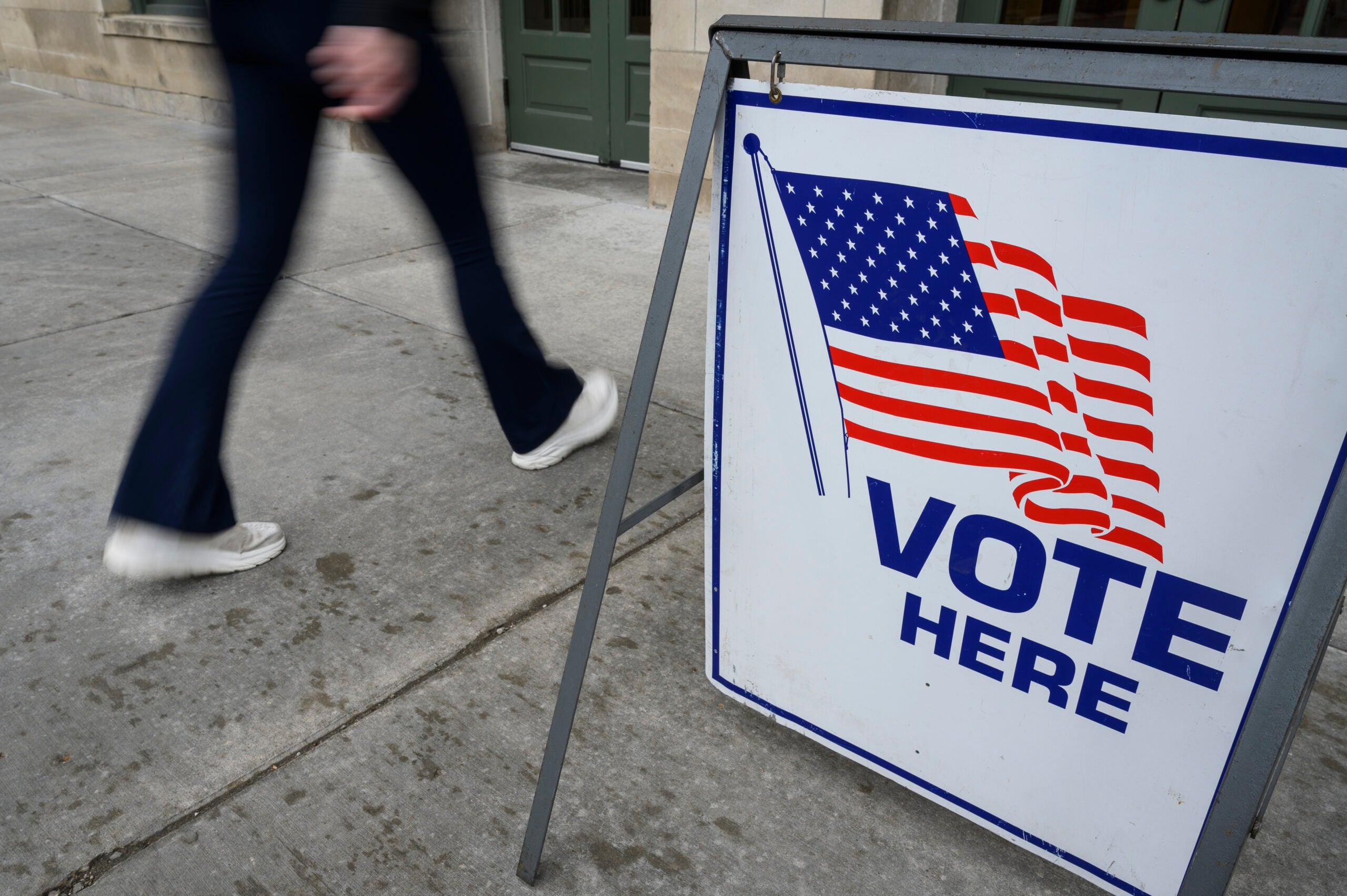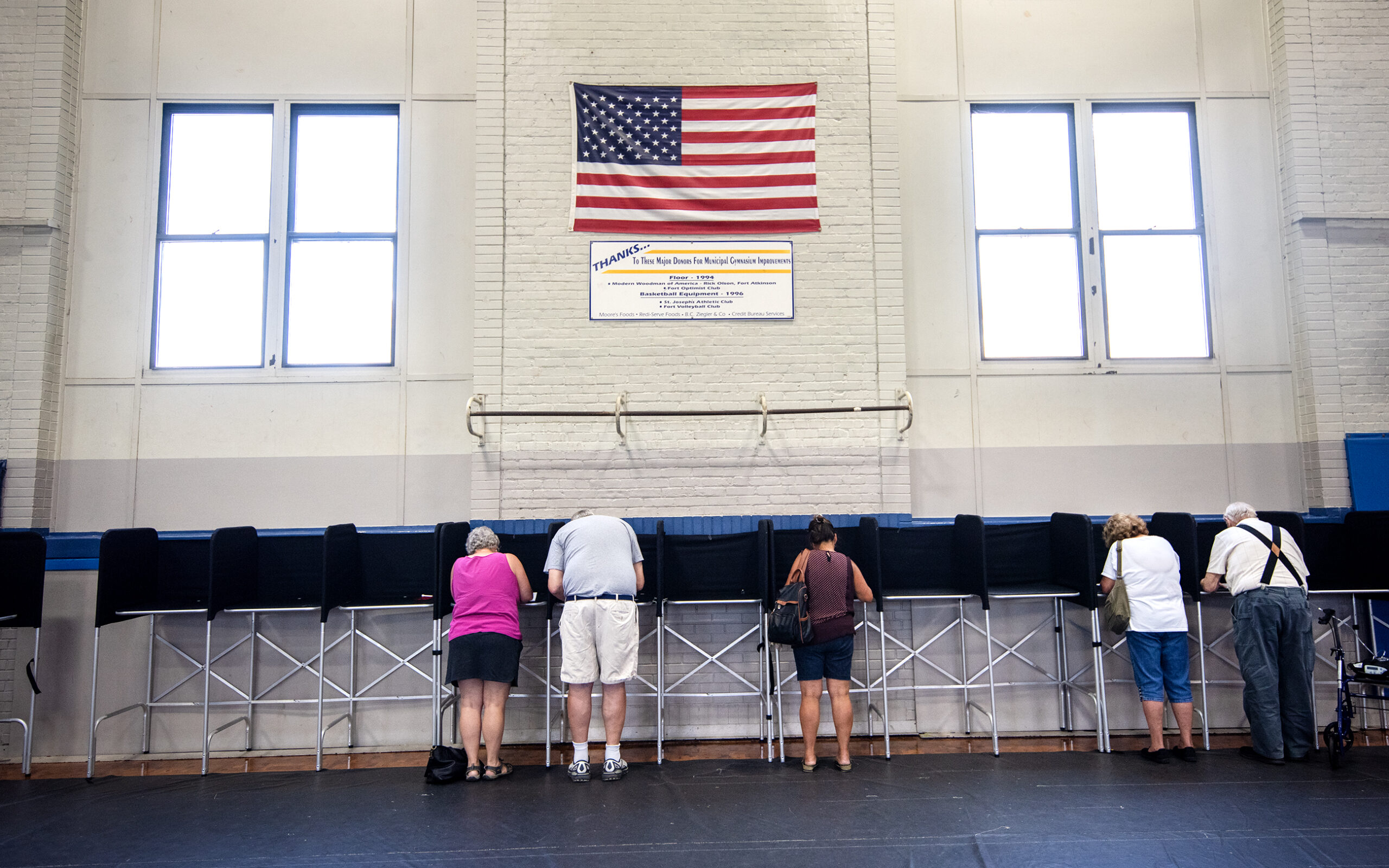Companies that manufacture guns or ammunition would be shielded from civil lawsuits under a measure Assembly Republicans sent to the governor’s desk.
The vote comes a week after families of victims killed in the Sandy Hook shooting won a $73 million settlement with Remington Arms, which made the AR-15-style rifle used in the 2012 school massacre in Newtown, Connecticut.
Under the measure that passed the Assembly on Wednesday, companies would be shielded from lawsuits to recover damages “resulting from the criminal or unlawful use of a firearm, firearm accessory, or ammunition by a third party.”
Stay informed on the latest news
Sign up for WPR’s email newsletter.
State Rep. Gae Magnafici, R-Dresser, argued those lawsuits threaten Second Amendment rights.
“Lawsuits against firearm manufacturers are one way the left is trying to restrict our rights,” Magnafici said. “When a crime is committed, we blame the criminal, not the gun.”
Magnafici authored the proposal, which was introduced before the Sandy Hook settlement was reached.
The measure is being pushed by a coalition of gun rights groups, including the National Rifle Association. State Rep. Deb Andraca, D-Whitefish Bay, said the legislation shows Republicans are more willing to listen to the gun lobby than the public.
“This legislature is willing to remove accountability from gun manufacturers, but refuses to do anything to meaningfully address gun violence,” Andraca said.
State Rep. Nick Milroy, D-South Range, joined all Republicans in supporting the plan, which already passed the state Senate.
Gov. Tony Evers is likely to veto the bill.
Giving legislators more control over federal funds
On Wednesday, Assembly Republicans passed a measure that could eventually amend the state constitution to give lawmakers more say over how to spend federal funds. Right now, that power is held exclusively by Wisconsin governors.
The move follows two years of Evers and Republicans butting heads over how to spend billions of dollars in federal coronavirus relief funds.
Under the proposal that passed the Assembly, a joint legislative committee, like the Legislature’s budget committee, would have to sign off on a plan for how to spend the funds first.
“There is not one single person in this country, not one single person in this state, who should be able to control billions of dollars unilaterally,” Assembly Majority Leader Jim Steineke, R-Kaukauna, said.
Democrats argued that if Evers had been required to get the Legislature’s approval for federal money during the pandemic, it could have caused lengthy delays in funding worthy projects.
“This is a place where Gov. Evers led the charge,” Rep. Lisa Subeck, D-Madison, said. “And there are programs like this in all of your communities in which we were able to bring new investment.”
The move passed the Assembly along party lines and already passed the state Senate along party lines. It would need to pass both houses again in the next Legislative session and then be approved by voters statewide to take effect.
Because the plan is a proposed constitutional amendment, it would sidestep a veto from Evers.
COVID-19 immunity, treatment
Assembly Republicans sent a plan to the governor’s desk that would let workers opt out of an employer’s COVID-19 vaccine requirement or regular testing requirements if they show they’ve already had the disease.
Republican backers say the plan recognizes the natural power of the human body to fight off infections, but several medical groups, including the Wisconsin Medical Society and the American Cancer Society, oppose the plan.
As Wisconsin Public Radio previously reported, natural immunity to COVID-19 weakens over time, and weakens faster than protection provided by COVID-19 vaccination.
Assembly lawmakers also passed a bill that would shield doctors from potential discipline for “express(ing) their professional opinion” related to health care or medicine. Its GOP backers say it would protect doctors who prescribe drugs like the antiparasitic drug ivermectin, which has been promoted by conservatives as a treatment for COVID-19.
Those measures now head to the state Senate, which could hold its final session day of the year in March.
Other proposals
Other proposals that cleared the Assembly on Wednesday include bills that would:
- Set aside $1.5 million for a system to track data on opioid and methamphetamine use.
- Require third-party delivery companies to have a restaurant’s permission before posting their menu online.
- Expand the rights of consumers when it comes to how their personal data is used and sold.
Some issues delayed
Republicans delayed votes on other proposals Wednesday. Those proposals include:
- A measure that would legalize a herbal supplement known as kratom.
- A resolution that would amend the state constitution to require a photo ID to vote in Wisconsin, something that’s currently only required in state law.
- A plan that would formally apply for an Article V convention to amend the U.S. Constitution to require term limits for United States senators and representatives. That plan was almost defeated in the state Senate on Tuesday but narrowly passed after state Sen. Alberta Darling, R-River Hills, changed her vote from “no” to “yes.”
Those proposals could still pass when the Assembly meets Thursday, but there are no guarantees with time running out on the legislative session.
Assembly Republicans have also scheduled votes Thursday on a package election bills that would ban private election grants, make it more difficult to vote absentee in Wisconsin, and give the Legislature more power over elections. The measures already passed the state Senate.
Wisconsin Public Radio, © Copyright 2024, Board of Regents of the University of Wisconsin System and Wisconsin Educational Communications Board.







